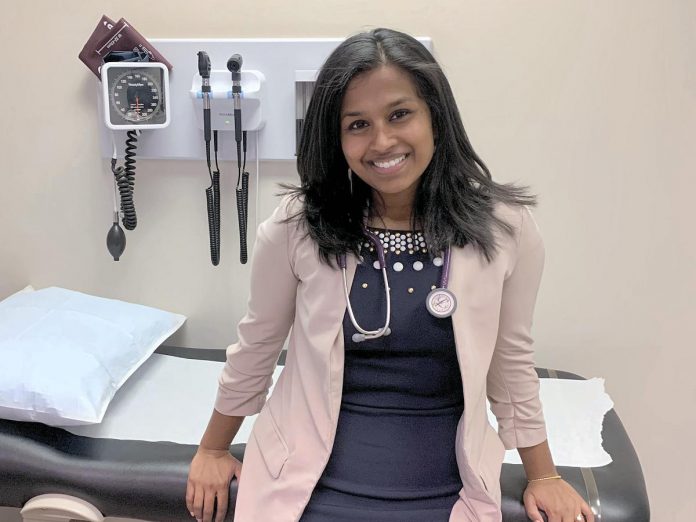
A group of doctors in Peterborough has created a physician think tank with the hopes of healing what ails the primary care sector, which is currently in the state of an “escalating crisis,” one physician says.
Dr. Madura Sundareswaran, the Peterborough family doctor who formed the think tank, said the group is necessary to uncover new solutions to meet the growing shortage of family doctors in the city and elsewhere. The think tank meets regularly to identify challenges and brainstorm strategies with the hopes of finding a remedy for the fragile primary care component of the health care system.
“This group aims to strengthen the sense of community among physicians and advocate for changes in the community to maintain access to primary care,” Dr. Sundareswaran said in a media release.
Earlier this summer, the think tank generated a report proposing a collaborative, multi-systems level strategy that could be used to guide future recruitment and retention efforts.
“The think tank hopes to work alongside the City of Peterborough to support its recent commitment to physician recruitment and retention,” Dr. Sundareswaran added.
Dr. Sundareswaran, who earlier this year received an award from the College of Physicians and Surgeons of Ontario that honours outstanding Ontario doctors, shared with kawarthaNOW her motivation for the initiative.
“Our local family doctors have all been impacted by the numerous family physician retirements and practice closures in our community over the last few years — the ever-increasing administrative burden, burnout and operational expenses continue to threaten the future of our profession,” Dr. Sundareswaran said.
“Despite this, Peterborough is made up of a strong group of family physicians who continue to enjoy their work, are passionate about what they do, and dedicate time and resources to train the next generation of family physicians.”
PDF: Recruitment & Retention – Peterborough Family Doctors’ Think Tank
Recruitment & Retention - Peterborough Family Doctors' Think Tank
The think tank aims to identify and address community-level challenges of administrative and systemic barriers “that threaten the future of the profession and compromise direct patient care,” Dr. Sundareswaran said.
“The solution to successful family physician recruitment and retention cannot lie on the shoulders of a single entity, but requires collaboration between various stakeholders including but not limited to the City of Peterborough, the provincial government, and family physicians themselves.”
She hopes to foster a sense of community among family physicians and support local recruitment and retention efforts. Being involved in the think tank is a unique endeavor for many of its participants and encourages both physician leadership and advocacy, the doctor added.
The think tank’s report shares perspectives on recruitment efforts to date and highlights potential solutions to help strengthen the recruitment and retention efforts within the community. Dr. Sundareswaran is hopeful the report can serve as a guideline for organizations, such as local government, which have identified physician recruitment as a priority.
The report shares feedback on recruitment efforts to date and “provides tangible solutions for a community-focused physician recruitment strategy.” Physicians share perspectives on incentive programs and stress the need for programs that support both new and existing family physicians.
“Family physicians are hoping for a more transparent, collaborative, and reliable recruitment strategy in the future, and hope to work with the City of Peterborough in the upcoming months to achieve this,” Dr. Sundareswaran said.
“By creating specific, community-focused goals, the think tank aims to … support physician-led initiatives to improve the local landscape of primary care,” Dr. Sundareswaran added. “In doing so, the think tank lends itself to become an innovative and productive recruitment and retention tool for family physicians.”
Each think tank session draws between 15 and 25 participants.
Since launching this initiative, the group has created resources for family physicians, including letter templates to standardize communication with community partners and a database of local referral destinations. The think tank has also advocated for changes in how referrals and letters are received between primary care and partner institutions.
“By being independent, the think tank aims to provide an objective forum and unify the voices of our local family physicians in a way that does not yet exist,” Dr. Sundareswaran said.
In response to the growing family physician shortage, the think tank is motivated to find solutions to mend “the escalating crisis,” she added.
The think tank is also working on strategies to retain physicians, which is another big challenge. Read more in an upcoming article in kawarthaNOW.


























